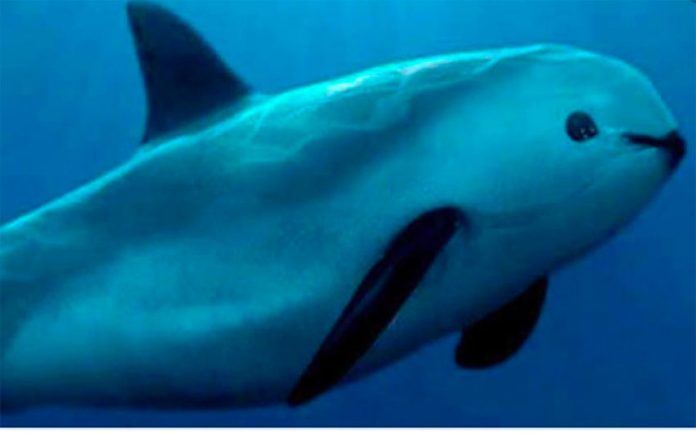The federal government has enlarged by 50% an area of what it calls zero tolerance in the upper Gulf of California to protect the critically endangered vaquita marina porpoise.
The Agriculture Ministry, the Environment Ministry and the navy published a decree in the government’s official gazette Thursday that declares that all gillnets are permanently prohibited in the zero tolerance zone, which is 75 square kilometers larger than the one previously in place.
A permanent ban on gillnets has been in place since 2017 but conservationists have accused the government of failing to enforce it, allowing illegal fishing to continue.
Some other nets including shrimp push nets can still be used in the area, according to the decree, and line fishing and diving for fishing purposes are permitted.
Gillnet fishing for totoaba, a species of fish prized in China for its swim bladder, has decimated the vaquita marina population to such an extent that it is now thought that there are fewer than 10 in the upper Gulf of California, the only place in the world they live. The mammals are prone to becoming entangled in the nets and drowning.
To ensure compliance with the fishing rules in the zero tolerance area, authorities will carry out sea and air patrols around the clock, according to the document published Thursday.
The government departments said that anyone planning to fish in the zero tolerance area using small boats must inform the nearest office of the National Aquaculture and Fisheries Commission (Conapesca) prior to launching.
They also said that fishermen must inform Conapesca if they have any interaction with marine mammals including vaquitas while on the water.
“All small boats … will be inspected without exception at the time of departure and at disembarkation,” the decree said.
Navy personnel, members of the National Guard, and officials with Conapesca and the environmental protection agency Profepa will be responsible for carrying out the inspections, the document said.
Sea Shepherd Conservation Society vessels have also patrolled the upper Gulf of California to ensure compliance with fishing rules. One of them, the M/V Sharpie, came under gunfire in February as it was being chased by four fishing skiffs known as pangas.
Source: Milenio (sp)
